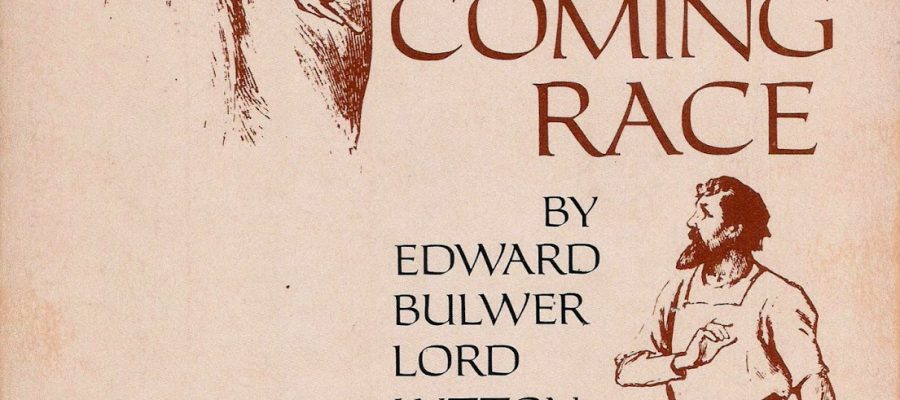“Nor, on the other hand, do you seem to belong to any civilised people“, (Pos. 345) says one of the Ana to the narrator of The Coming Race (1871), in which humans are represented as an inferior version of the same species the Ana derived from. This notion is expressed several times throughout the text, cf. pos.194, 196, 511) Still, despite their physical and intellectual advancement, the Ana are neither arrogant towards their human visitor, nor do they want to conquer or colonise the humans above ground.
The narrative takes Darwin’s theory to imagine an alternative, yet better human, i.e a species that has not just survived as one of the fittest, but also evolved. They are represented as much more advanced physically, culturally, and socially as their human „family members“. Their faces, for example, resemble “a sculptured sphinx – so regular in its calm, intellectual, mysterious beauty“ (Pos. 140). Moreover, in a posthuman outlook they mechanically enhance their bodies: “It’s chief covering seemed to me to be composed of large wings folded over its breast and reaching to its knees“ (Pos. 137).
Electric energy is the source of the posthuman live, since it powers the artificial , but nurturing light. The vril is also of such an energy (cf. Pos 398) – a very Frankenstein-esque idea, paralleling the human body to a machine. It is therefore interesting that the highly advanced Ana resemble the very ancient imagery of (spiritual) angels, a contrast also emphasised by the narrator’s initial comparison of the coming race to a demonic species. This could at least be read as the influence the author’s contemporary beliefs have on his writing. Yet, it also hints towards the idea that the consequences such a (posthuman) species might have for the human existence should be asked and answered critically.
Source: Bulger-Lytton, Edward. The Coming Race. In: European Libraries Collection. Oxford: OUP, 1872. Ebook.

Leave a Reply
2 Comments on "Angelic imagery of a posthuman species in “The Coming Race”"
I’m somewhat curious how you gathered that the Ana were, at worst, indifferent towards the human race, as I had the inverse impression; that there was some amount of antipathy towards them, and arguably some arrogance: For example, the narrator being instructed to keep his ancestry secret, the likening of the Ana to the Egyptian or Greek guardians of secrets [from the unworthy], their lack of seeking consent in their instructions of the narrator, etc.
Is it possible Lytton was also trying to sneak in a moral lesson for the posthuman condition, so to speak?
Dear Claudia, thanks for your interesting post! I agree that the book contains a subliminal moral, that leads back to the author´s critical view on any kind human enhancement. At least the potential danger and misuse of technologies such as the vril are omnipresent in the book.